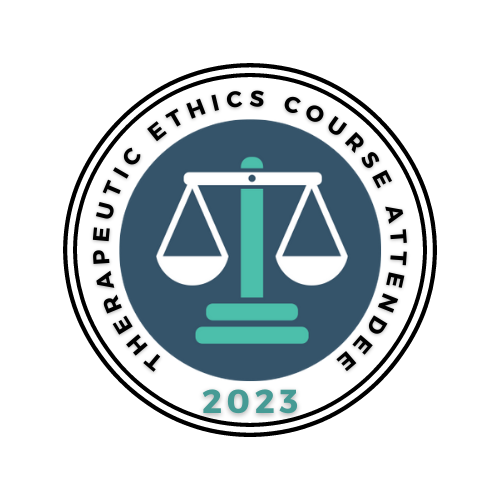Cynthia Levitas
Credentials
Finances
Licensed Abroad
- Chaim Weitzman 30
- Modiin, 7172200
Cynthia Levitas
 Verified
Verified
Credentials
Psychotherapist, Child and Family Therapist
LMFT, MA
Finances
350-500 NIS
N/A
Sliding Scale | Free Consultation
No one will be turned away due to lack of funds.
- Chaim Weitzman 30
- Modiin, 7172200
ABOUT THE THERAPIST
Is a challenging child creating tension in your family?
Learn parenting strategies that transform the chaos into happiness and harmony
Offered by Cynthia Levitas, LMFT
Licensed Marriage and Family Therapist in Modiin
Certified by the Israel Association for Couple and Family Therapy
Specializing in helping parents and families with children 5-11, I consider myself a parent and child champion.
Do you have a child who:
- Has “meltdowns”—angry, lashes out, says “I hate you!”?
- Is anxious—fearful, shy, irritable, worries, physical symptoms?
- Is sad or lonely—withdraws, won’t share feelings, feels unfairly treated?
- Has low self-esteem—avoids a task before trying, quits in fear of failure, has trouble making friends, is bossy?
Here’s a chance to discuss your child’s challenges—and your own—and learn how to successfully resolve both: Explore how these parenting strategies can help you make dramatic improvements in your child’s—and family’s happiness— often without resorting to therapy.
Best of all, these ten skills really work! Most parents see results immediately, even after the first session. Even for families with challenging kids, and even for parents who've almost given up on creating the changes they want—you’ll gain new competence and confidence in handling the full range of your child’s emotional and behavior challenges.
These skills will increase your parenting success. As a child and family therapist, I’ve passed these proven skills along to hundreds of parents. I’ve seen them invariably deliver impressive results: Dramatic improvements in children’s behavior and happiness, as well as creating happier, more rewarding family relationships.
As we tackle your child’s issues together, parents usually see immediate results:
- Fewer meltdowns
- Fewer bedtime battles
- No more power struggles
- More parent-child cooperation
- A return to joyful parenting
To learn how these proven strategies have helped me return families to stability and joy for over 13 years, please contact me.
QUALIFICATIONS
LMFT
CA licensed Marriage and Family Therapist
MA
John F. Kennedy University
2011
Degree
LMFTEducation
CA licensed Marriage and Family TherapistYear of Graduation
Degree
MAEducation
John F. Kennedy UniversityYear of Graduation
2011Years in Practice
13
LICENSED ABROAD
License Category
Marriage and Family TherapistLicense Number
CA - 106750ADDITIONAL CREDENTIALS
Qualified Therapist in Couple and Family Therapy - Israel Association of Couples and Family Therapy - 2022
DISTANCE COUNSELING
Telephone Counseling, Online Therapy
PRIMARY SPECIALTIES
Behavioral Concerns In Children
Child Abuse
Family Issues
Parenting Issues / Training
Self-Esteem
ADDITIONAL SPECIALTIES
Abuse
Anger Management
Anxiety / Panic
Depression
Self-Harm / Suicide
Trauma / Post Traumatic Stress Disorder PTSD
CLIENT FOCUS
Population
Children
Families
Languages Spoken
English
TREATMENT APPROACH
Attachment-Based Family Therapy (ABFT)Attachment-based family therapy (ABFT) is a form of psychotherapy that focuses on the family's relationships and communication patterns. It is based on the theory that strong and secure attachments between family members are essential for emotional health and well-being. The goal of ABFT is to identify any problems in family relationships, enable family members to become more attuned to each other’s needs, and build a secure bond between them. It also helps family members to practice healthy communication skills, learn effective problem-solving strategies, and build trust within the family.
Family Systems TherapyFamily Systems Therapy is an approach to psychotherapy that emphasizes the importance of understanding how the family functions as a whole, and how individual family members interact and affect one another. It focuses on how family dynamics, such as communication patterns, roles, and power dynamics, shape behavior, and how changing these dynamics can lead to positive change. Family Systems Therapy is a collaborative approach, where the therapist works with the family as a whole to identify and address areas of conflict and distress.
Person-Centered Therapy (Rogerian Therapy)Person-centered therapy, or Rogerian therapy, was developed by Carl Rogers in the 1940’s. It is a form of talk therapy that emphasizes the importance of providing psychological safety, unconditional positive regard, and empathic understanding to clients. This type of therapy is based on the belief that individuals have an innate capacity for self-actualization and self-understanding and that the therapist's role is to provide a supportive environment in which this process can take place. Through the use of active listening, open-ended questions, and non-judgmental reflection, the therapist helps the client to explore their thoughts, feelings, and experiences in a safe and accepting environment. By doing so, clients are able to gain insight into their issues, develop a greater understanding of themselves, and work towards personal growth.
Parent Education, Parent Coaching, Circle of Security Parenting
SERVICES OFFERED
Individual Therapy
Group Therapy
Family Therapy
Consultation
Workshops/Educating
Home-based Therapy
Hadrachat Horim


 Verified
Verified

